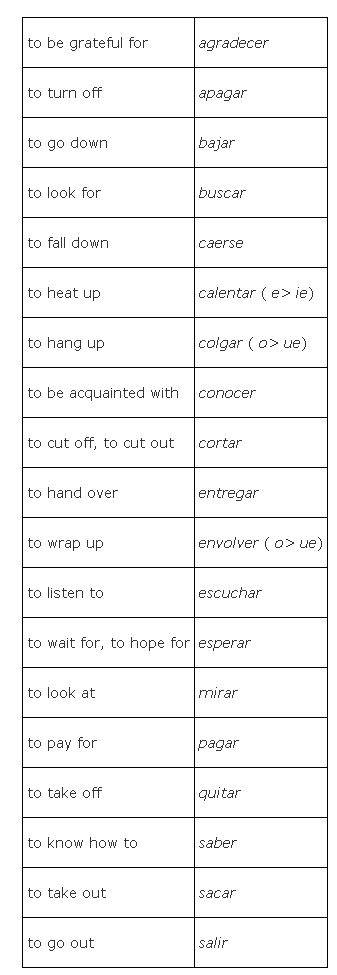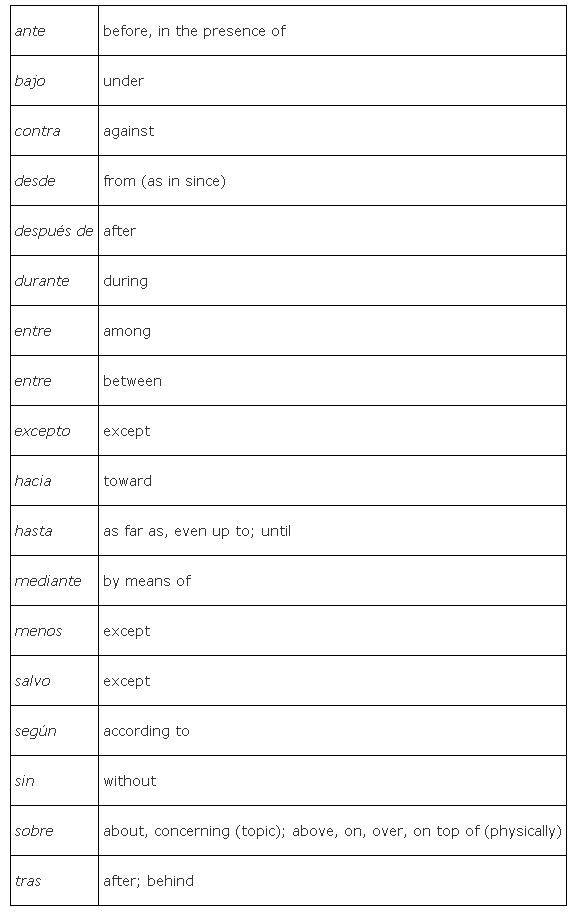Verbs Followed by Prepositions
Some expressions in English require a verb to be followed by a preposition. You often do not notice the preposition when you speak English, but you will incorrectly think you need to provide a Spanish equivalent when you translate these expressions. For the English expressions below, the Spanish translation includes a verb that is not followed by any preposition.

After the difficulties presented by por and para, it should be refreshing to learn that some simple prepositions can be translated to a simple English equivalent. The most common truly simple prepositions are listed below.

Use with infinitive
Remember that any time a preposition is immediately followed by a verb, that verb will be in its infinitive form. This is not always true in English, so there will be times when it will not “sound right” to use an infinitive, but there are no exceptions to the Spanish rule: A verb must be in its infinitive form if it immediately follows a preposition.
- Los jóvenes aprenden a esquiar.
- The teenagers are learning to ski.
- Yoli está cansada de prestar atención.
- Yoli is tired of paying attention.
- Es imposible terminar sin empezar.
- It is impossible to finish without beginning.
|
|
|
|
|
|
|
|
|
|
|
|
|
|
|
|
|
|
|
|
|
|
|
|
|
|
|
|
|
|
|
|
|